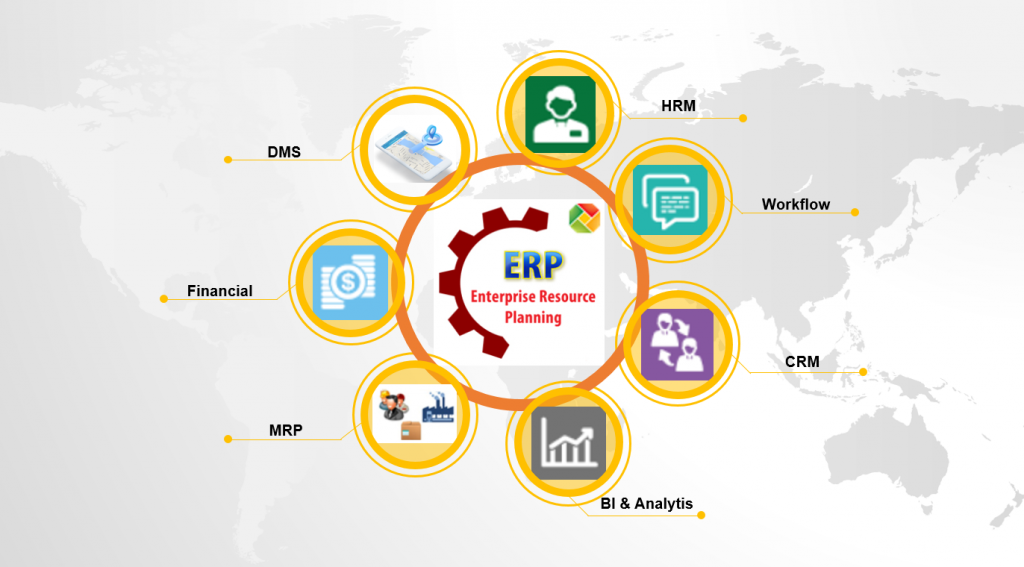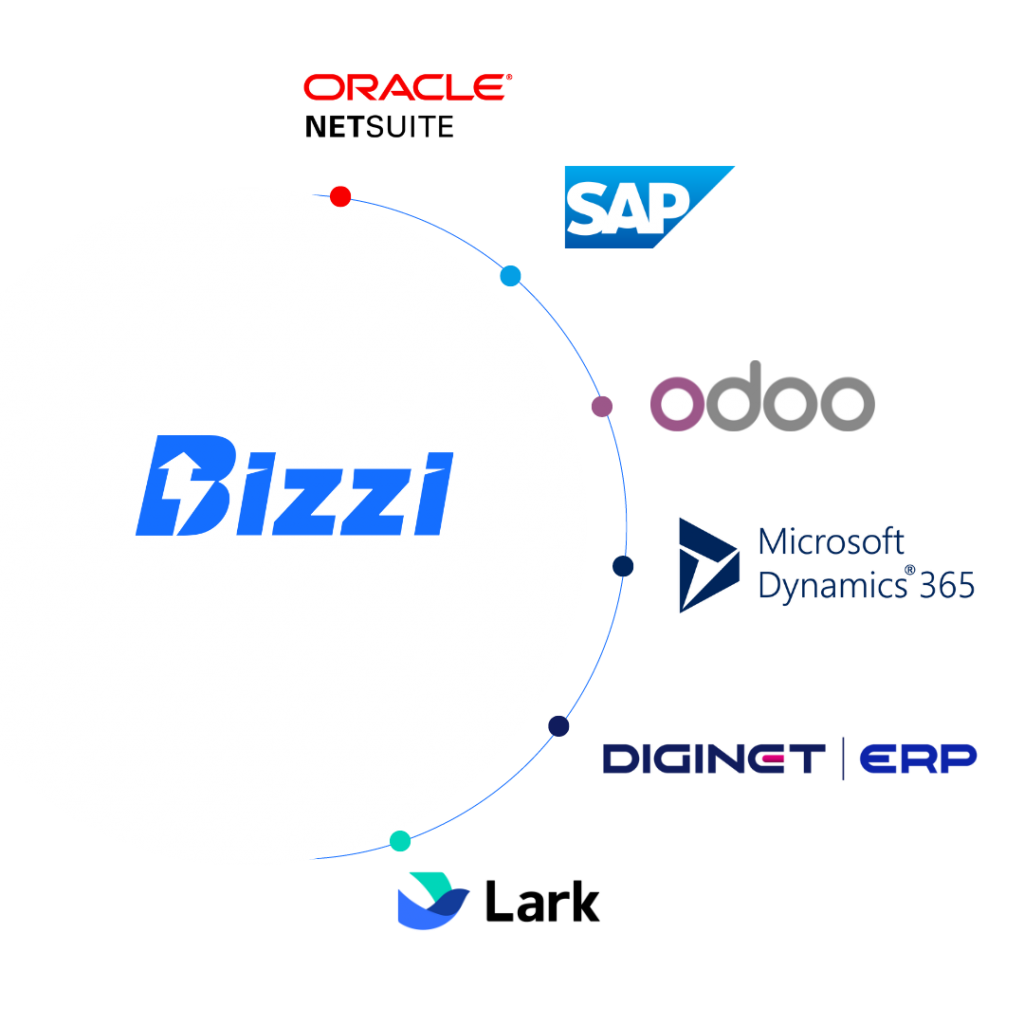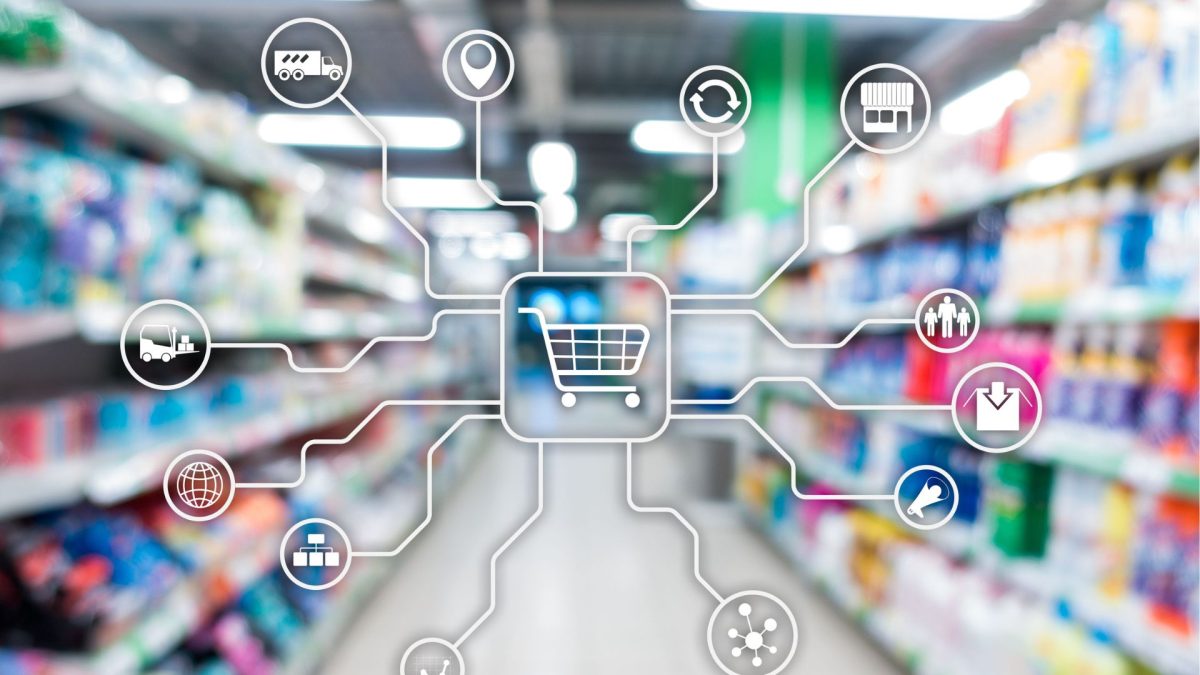Finding an ERP solution for the retail industry not only helps businesses optimize operations, but also enhances customer experience and increases profits through centralized data management, shopping behavior analysis, smart inventory and effective omnichannel sales.
This article by Bizzi will specifically analyze the benefits of implementing ERP software for the retail industry as well as suggest appropriate implementation and selection processes.
Introduction to the retail industry and its current challenges
The retail market in Vietnam is becoming vibrant with the potential to increase the number of purchases due to the more than 60% population of working age with good payment ability. However, businesses are also facing many major challenges, specifically:
- Fierce competition: Extremely fierce competition from domestic and foreign "giants".
- Pressure for digital transformation: Retailers need to understand customer needs at the point of interaction and respond quickly to gain a competitive advantage.
- Adaptability and adaptability: Need to be flexible, efficient and provide timely accurate information to support purchasing decisions.
- Changes in consumer behavior and tastes:
- The explosion of e-commerce and online shopping (on websites, e-commerce platforms, social networks) has significantly changed shopping habits.
- Customers tend to review and select products online before buying in store.
- Gen Z with its mixed online and offline shopping behavior demands a seamless omnichannel experience.
- Difficulties in information and inventory management: Lack of tight information control tools, fragmented data, difficulty in grasping the volume of goods imported and exported, and difficulty in forecasting demand.
- Difficulty in decision making and performance evaluation: Lack of accurate, timely information leads to decision delays and difficulty in performance evaluation.
With the above challenges, ERP software for the retail industry is a powerful tool to help businesses plan resources, control processes and improve business.
What is ERP for the retail industry?
ERP for the retail industry is a software solution specifically designed to integrate and connect business processes and solve specific problems of the retail industry in depth.
This system allows businesses to collect, store and manage data from different business operations and departments in one central location, helping businesses run more smoothly.
- Comparing ERP for retail industry with traditional ERP:
- Scope and objectives: Traditional ERP is a general system for many industries, while retail ERP is Optimized for businesses in the retail sector, meeting the specific requirements of the industry.
- Function: Retail ERP focuses on addressing requirements such as inventory management, point of sale (POS) management, customer management, store management, and payment system integration. Traditional ERP may lack these specialized features.
- Customization capabilities: Retail ERP is often flexible enough to be customized to fit the specific business model and sales processes of each retail business. Traditional ERP is less customizable.
- Implementation costs: Retail ERP implementation costs can be lower than traditional ERP due to its specificity.

Benefits of applying ERP software for the retail industry
Applying ERP software to the retail industry brings many outstanding benefits, helping businesses optimize operations, control costs, increase customer experience and enhance competitiveness.
Here are the specific benefits:
- Optimize operations and processes:
- Reduce management and operating costs: Standardizing and automating processes saves time, manpower and costs, especially logistics and labor costs when scaling.
- Tight information control and real-time data synchronization: All information is aggregated and used in a central database, eliminating redundant data and providing a comprehensive view.
- Standardize the process: Help departments perform work consistently, improving business efficiency.
- Improve customer experience and retention:
- Understand and personalize the experience: Track customer purchase history and preferences to optimize targeted marketing strategies and create personalized shopping experiences.
- Effective Customer Relationship Management (CRM): Store multi-dimensional customer profiles, support loyalty programs and handle complaints quickly.
- Increase the ability to close orders: Staff can easily look up product and customer information to provide more effective advice.
- Make data-driven strategic decisions:
- Provide timely and accurate reporting and analysis: Professional reporting system supports buy/sell decisions, product catalog, pricing and more.
- Demand forecast: Analyze past purchasing trends to accurately forecast future demand.
- Enhance competitive advantage: Help businesses be proactive in marketing activities, detect problems early and make timely decisions.
Core Features of ERP Systems for the Retail Industry
A modern retail ERP solution typically includes the following core features:
- Point of Sale (POS) System: Integrate POS machines and POS software to support fast transactions, accurate payments, compatible with hardware devices and suitable for all business models. Includes barcode scanning, cash management, promotions and discounts, low inventory warnings.
- Inventory management: Track accurate inventory in real-time across all channels, forecast demand, manage SKUs, item codes, automatically replenish stock, and optimize product distribution between stores. Helps reduce inefficient inventory, save time searching and organizing goods.
- Purchasing and Supplier Management: Support sustainable and transparent purchasing process through request approval steps, online order confirmation, automatic generation of warehouse receipts and supplier invoices. Help track payments and debts.
- Supply chain management: Provides end-to-end supply chain management, including procurement, supplier management, order management, and logistics. Helps optimize procurement processes and reduce delivery times.
- Human resource management: Store employee information, work history, salary, bonus, assigned tasks, targets and completion levels. Support attendance, shift management, and performance evaluation.
- E-commerce integration: Closely integrate with e-commerce platforms to synchronize product information, inventory levels, prices and orders in real time. Make operations more efficient, reduce operating costs and inventory.
- Sales reporting & analysis: Provides detailed information on sales, orders, profits per product, helps identify fast-selling and slow-moving items. Supports making the right choices for businesses on product categories and prices.

Bizzi.vn: Specialized solution to optimize financial processes integrated with ERP for the retail industry
Bizzi.vn is a specialized financial automation platform, not a comprehensive ERP system. It is designed to complement ERP system existing by providing deeper automation capabilities in specific financial processes.
Bizzi operates under the Software as a Service (SaaS) model and mainly targets medium and large enterprises in Vietnam, while also serving the capital needs of small and medium enterprises and startups.
- Bizzi.vn's core features focus on finance:
- Processing, reconciling and managing input invoices: Automatically process incoming invoices using RPA and AI technology to upload, check and reconcile invoices in less than 30 seconds. The system is automated 3D comparison Invoices with purchase orders (POs) and warehouse receipts (GRs) in real time, discrepancy detection, valid supplier verification and risky invoice alerts. Incoming invoices are automatically recorded and stored for 10 years.
- Business Expense Management (Bizzi Expense): Digitize the entire process of creating payment requests and approving expenses. Allows setting up budgets by department/project, monitoring spending against budget in real time and alerting when budget is exceeded. Provides detailed reports on spending and supports setting up and enforcing spending policies.
- Business Travel Management (Bizzi Travel): Automate flight bookings integrated with ticketing services. Manage and track business expenses such as flights, hotels, transportation, and meals. Set spending limits and pre-approval processes for travel.
- Electronic invoice (B-invoice): Create electronic invoices according to prescribed standards (Decree 123/2020/ND-CP, Circular 78/2021/TT-BTC). Provide customized invoice templates, batch invoice issuance, authentication codes from tax authorities, store invoices for at least 10 years. Easily look up, download, print invoices and manage invoice status.
- Accounts Receivable Management (ARM): Provide tools to track, reconcile debts and important indicators such as DSO, debt aging report. Automatically remind debt according to scenarios via email and text messages, helping to closely manage customer and supplier debts.
- Bizzi Business Credit Card: Providing corporate credit card solutions with benefits of spending now, paying later (0% interest rate up to 45 days) and integrating with expense management applications for effective spending control.
- Connecting capital sources: Facilitate businesses' access to capital through supply chain finance and working capital financing options, especially suitable for SMEs and startups in need of capital to expand their business.
- Automatic order processing: The feature supports automatic order processing from customers, contributing to accelerating sales.
- Integration with ERP: Bizzi.vn has the ability to seamlessly integrate with leading ERP systems such as Oracle NetSuite, SAP, Microsoft Dynamics 365 Finance, Odoo and Lark through multiple flexible integration methods (Open API, API connectivity, file integration). This allows businesses to increase financial efficiency without replacing the entire existing ERP system.

ERP implementation process for retail industry and factors to note
To successfully deploy an ERP system for the retail industry, businesses need to pay attention to the following steps and factors:
- Define clear goals and strategic direction:
- Set key goals (e.g. improve inventory management, optimize processes, enhance customer experience) and specific expectations along with appropriate KPIs to measure performance.
- Evaluate and select the appropriate ERP system:
- Review your current processes, compare ERP systems on features, cost, scalability, and most importantly, choose a reputable vendor with experience in the retail industry and ongoing technical support.
- Detailed implementation plan:
- Develop a careful implementation roadmap, breaking the process down into specific phases and work packages, defining clear deliverables and timelines. Allocate appropriate resources to each task.
- Attracting and training staff:
- Develop a communication strategy to ensure employees understand the benefits of the transition. Provide training that closely follows the actual process and system functionality, and conduct User Acceptance Tests to ensure the system functions as expected and is complete before official deployment.
- Ensure information security:
- ERP systems store large amounts of critical data, so it is necessary to ensure that the software is secure, highly secure, and that measures are in place to protect data from cyber threats.
Development trends of ERP for the retail industry
The future of ERP for the retail industry promises to help businesses optimize operational performance, improve customer experience, and enhance market competitiveness. Notable trends include:
- Focus on data analytics and Business Intelligence (BI): With such a huge amount of data, retail ERP will increasingly rely on intelligent analytics to gain insights into business situations, predict consumer trends, and make data-driven strategic decisions.
- Integrated with modern technology (AI, Machine Learning, IoT): Integrating ERP with IoT helps track inventory, manage delivery processes in real time. Combining with AI and Machine Learning brings the ability to forecast demand, optimize prices and manage the supply chain more effectively, and may even replace the ERP process in the future.
- Cloud ERP (Cloud-based ERP): Cloud computing is becoming an inevitable trend, bringing benefits of reduced investment costs, increased flexibility and scalability, allowing businesses to access data anytime, anywhere.
- More customization and flexibility: The diverse retail industry requires ERP systems that can be customized to meet the unique needs of each business. There is a growing trend of using open source solutions that can customize their configuration and features.
- Sustainable development and ensuring product origin quality: With the increase in environmental awareness, ERP is being used to monitor and ensure supply chain quality, track product origin and control carbon emissions.
Conclude
ERP systems have become an essential tool for retail businesses to address challenges, optimize operations, and gain competitive advantage. By implementing ERP solutions for the retail industry in depth, businesses can effectively manage resources, enhance customer experience, and promote sustainable growth in a volatile market environment.
Investing in a detailed digital transformation strategy and roadmap, along with the involvement of all employees, is a key factor for a successful ERP implementation. To receive advice on an integrated financial management solution for the retail ERP industry that suits your business needs, register here:
- Link to register for a trial of Bizzi products: https://bizzi.vn/dang-ky-dung-thu/
- Schedule a demo: https://bizzi.vn/dat-lich-demo/


